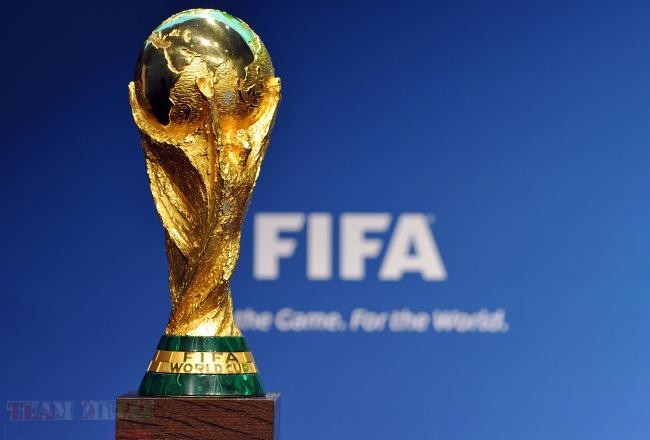The Korea Times
.jpg) A European team has never won the World Cup when in South America. An Asian team has never actually won a game on the soccer-crazy continent ― although 1978 was the last time the tournament was held there.
A European team has never won the World Cup when in South America. An Asian team has never actually won a game on the soccer-crazy continent ― although 1978 was the last time the tournament was held there.
Both trends could be broken over the next few weeks.
South Korea is joined by fellow Asian Football Confederation (AFC) members Japan, Iran and Australia in Brazil, four teams that carry the hopes of more than half of the world’s population. For Asia’s reputation as well as its hopes of being allocated more World Cup spots in the future, the continent needs to make a good showing ― two teams, preferably more, need to survive the group stage and reach the round of 16.
Japan looks the best bet. The Samurai Blue is Asian champion and is full of players active in Europe’s big leagues. Keisuke Honda of AC Milan and Manchester United’s Shinji Kagawa may not have had the best domestic seasons, but they are at least fresh ahead of games against Cote d’Ivoire, Greece and Colombia.
Lining up alongside the famous duo is an unsung player who may be ready for international stardom. Shinji Okazaki scored 15 goals for FSV Mainz 05 in the just completed German season.
.jpg) Coached by respected Italian tactician Alberto Zaccheroni, Japan’s attack has been scoring plenty of late. In June, it scored a 3-1 win over Costa Rica, and then beat Zambia 4-3. However, as the scores suggest, Japan is not quite as strong at the back, but should have the talent to get at least into the second round.
Coached by respected Italian tactician Alberto Zaccheroni, Japan’s attack has been scoring plenty of late. In June, it scored a 3-1 win over Costa Rica, and then beat Zambia 4-3. However, as the scores suggest, Japan is not quite as strong at the back, but should have the talent to get at least into the second round.
“Because Japan is little known in world football, we want to play good football and make a huge impact so the world will recognize the presence of the Japan football team,” Kagawa said this week.
Japan’s prospects look much better than Australia’s. Under new coach Ange Postecolou, the Socceroos are in transition from a team of experienced veterans from the 2006 and 2010 campaigns.
The new-look team has one of the toughest groups imaginable.
Having to face champion Spain is tough enough, but then there is the small matter of 2010 runner-up the Netherlands, another star-studded opponent featuring the likes of Manchester United hitman Robin Van Persie and the supremely talented Arjen Robben of Bayern Munich. Australia’s opening game is against Chile, a dark horse, but playing on its own continent and with Alexis Sanchez of Barcelona in its ranks.
In some ways, being in such a tough group has taken the pressure off Australia. Nobody expects the team to progress to the second round, making it easier for the coach to regenerate the roster. And any points picked up will be greeted with delight down under. It is almost a no-lose situation.
Then there is Iran. The Persians finished above South Korea in qualification but have been pretty quiet since, struggling to arrange preparation games because it is not always easy to lure teams to Tehran
.jpg)
Former Real Madrid and Portugal coach Carlos Queiroz will need all his considerable tactical ability to get the team out of a group containing Argentina, Nigeria and Bosnia. It is a tough group, but it could have been worse. Iran’s best hope may lie in being underestimated.
In some ways, Korea’s preparation has been worse. The team has had a good deal more games than Iran, but losing four out of the last five ― the latest last week’s 4-0 thrashing by Ghana ― has everyone talking of impending doom against Russia, Algeria and Belgium.
Perhaps some solace can be taken from Japan. Four years ago, the Samurai Blue lost four out of its final five warm-up games, with leading coach Takeshi Okada offer his resignation.
Yet, this all changed at the World Cup, with Japan within a penalty shootout for a place in the final eight.
With the possible exception of Japan, Korea and the rest of Asia would settle for that.
John Duerden is writing for about Korea’s campaign at the World Cup in Brazil. ― ED.

